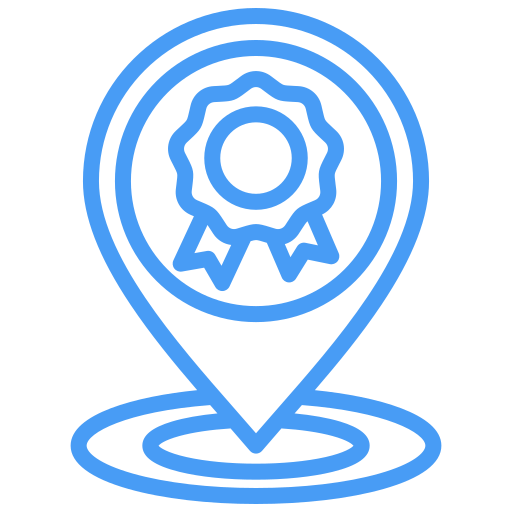Modern business and communication both rely heavily on the dynamic and crucial element of digital marketing. It includes a wide variety of methods and tactics used to advertise goods, services, or brands online. Search engine optimization (SEO), pay-per-click (PPC) advertising, social media marketing, email marketing, content production, and many more techniques are all part of this multidimensional profession. To reach their target audiences, interact with potential consumers, and turn leads into sales, digital marketers use a range of online platforms and channels. Data analysis, along with the capacity to modify and improve tactics depending on performance indicators, are crucial components of a successful digital marketing strategy.
Additional Information
What Goals Are Achieved in a Digital Marketing Programming Course?
Several significant objectives are met in a digital marketing programming course to provide students the know-how and abilities they need to succeed in the field of digital marketing. These objectives usually consist of:
- Learners develop a firm understanding of the principles, ideas, and jargon of digital marketing. They get knowledge about the current state of digital marketing and its importance in the commercial sector.
- Participants gain hands-on experience with a variety of digital marketing channels, including search engine optimization (SEO), pay-per-click (PPC) advertising, social media marketing, email marketing, content marketing, and others. They get knowledge about how to use these channels efficiently.
- In order to achieve particular corporate objectives, students learn how to create, carry out, and evaluate digital marketing initiatives. This entails establishing specific goals, determining target markets, and choosing the ideal combination of digital marketing strategies.
- A major objective is to comprehend metrics and analytics tools. To evaluate the effectiveness of digital marketing activities, learners develop their tracking, analysis, and interpretation skills. Using these knowledge, they may optimize their strategy.
- In digital marketing, content is crucial. The ability to produce interesting and pertinent information, such as blog posts and social media updates, as well as comprehend content management systems, is taught to students.
- Learners are introduced to a range of digital marketing software and tools in this course, including Google Analytics, email marketing platforms, SEO tools, and social media management platforms.
What Advantages Can You Afford By Earning a Digital Marketing Certification?
For those wishing to improve their careers in the industry, obtaining a digital marketing certification has several benefits. These benefits consist of:
- Credibility and recognition are provided by certificates in digital marketing from respectable organizations. They demonstrate your knowledge of the field and your dedication to it.
- You may become a more productive and adaptable marketer by enrolling in certification programs that provide in-depth information and practical skills in a variety of digital marketing disciplines.
- Certifications in digital marketing might lead to promotions and new employment prospects. They increase your appeal to businesses looking for qualified experts.
- Due to their specific expertise and capacity to provide quantifiable outcomes for firms, certified digital marketers sometimes charge higher wages.
- The newest industry trends and technology are kept current via certification programs, ensuring that you stay relevant in a profession that is always changing.
- Many certification programs give you access to networking opportunities and online groups where you may meet other professionals, exchange stories, and gain knowledge from subject-matter experts.
What New Digital Marketing Frameworks Are There?
The ever-evolving field of digital marketing has given rise to a number of fresh frameworks and strategies that may be tailored to suit shifting customer preferences and technology developments.
One noteworthy framework is "Customer Journey Mapping," which focuses on comprehending and improving the complete customer experience, from awareness through conversion and post-purchase interaction. The "Inbound Marketing Methodology," which places a strong emphasis on producing excellent content to draw in, engage, and please clients, is another noteworthy advancement. Moreover, the "Account-Based Marketing (ABM)" paradigm has grown in popularity, focusing on a small number of high-value clients using tailored approaches. Additionally, the advent of "Conversational Marketing" combines immediate, individualized communication via chatbots and messaging services. These frameworks show how the market has changed to focus on more interactive, data-driven, and customer-centric marketing tactics to satisfy the needs of the digital age.
A Guide to the Digital Marketing Programming Language
Digital marketing includes a wide range of tactics, tools, and strategies that frequently benefit from programming language expertise to be as effective as possible. A list of some of the vital programming languages for digital marketing is provided below:
- Cascading Style Sheets (CSS) and HyperText Markup Language (HTML) are essential for email marketing and website creation. Knowing these languages gives marketers the ability to design and alter email templates and web pages to make sure they appear and work as planned.
- JavaScript is essential for making webpages and landing pages interactive. It is employed for tasks including form validation, pop-up creation, and user activity monitoring on websites.
- For using databases, Structured Query Language (SQL) is essential. The ability to access, manage, and analyze data using SQL is a must for campaigns that leverage data-driven marketing.
- Python is a flexible language that is frequently used for site scraping, marketing automation, and data analysis. It can be useful for automating repetitive processes, doing statistical analysis, and retrieving and processing data from diverse sources.
- R is a specialized language for data visualization and statistical research. It is especially beneficial for analyzing consumer behavior, doing A/B tests, and developing data-driven marketing plans.
- When developing websites on servers, PHP is frequently used. Understanding PHP may help with dynamic website adjustments like content personalization depending on user behavior.
Tools and Knowledge for Digital Marketing Developers:
For the purpose of efficiently developing, putting into practice, and optimizing digital marketing strategies, digital marketing developers need a mix of technological tools and knowledge. The following are essential resources and subject areas for digital marketing developers:
- Knowledge with major CMS platforms for developing and managing online content, such as WordPress, Drupal, or Joomla.
- Ability to handle email campaigns utilizing email marketing solutions such as Mailchimp, Constant Contact, or HubSpot.
- Mastery of web development tools and frameworks such as HTML, CSS, JavaScript, and front-end frameworks such as React and Angular.
- Understanding of SEO tools such as Moz, Ahrefs, SEMrush, and Google Analytics for website optimization and search performance analysis.
- Competence in creating and managing paid ad campaigns utilizing PPC advertising platforms such as Google Ads, Bing Ads, and Facebook Ads Manager.
- Experience designing automated marketing workflows using marketing automation tools such as HubSpot, Marketo, or Salesforce Marketing Cloud.


.png)
.png)
.png)
.png)

.png)
.png)
.png)
.png)
.png)


















.jpg)






